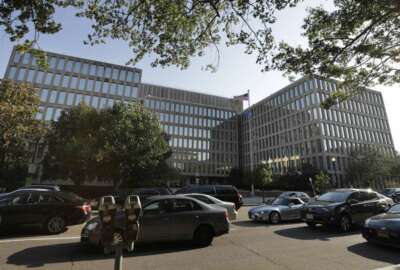

A group of Senate Democrats, led by Minority Leader Chuck Schumer (D-N.Y.), has introduced a bill that would ensure all federal employees, including those at the...
Tens of thousands of federal employees aren’t covered under the new paid parental leave law Congress and the White House passed late last year with much fanfare, but lawmakers have a plan to address the mistake.
The Federal Employee Paid Leave Act (FEPLA), which President Donald Trump signed into law in mid-December, grants employees up to 12 weeks of paid time off for the birth, adoption or foster of a new child. Lawmakers, the White House and employee groups have touted the new benefit as an historic achievement for the federal workforce.
But as it’s written, FEPLA leaves out federal employees who aren’t covered by Title 5, and the language at times is ambiguous as to whether workers covered by other statutes would also have access to new paid parental leave benefits.
Specifically, the paid parental leave law leaves out much of the Federal Aviation Administration, some employees at the Transportation Security Administration, non-judicial employees of the District of Columbia courts, the District of Columbia Public Defender Service, presidential employees and bankruptcy and magistrate judges.
Congress, however, has been aware of what it’s described as technical errors with the paid parental leave law practically since lawmakers first struck a deal to include it in the 2020 defense policy bill.
Senate Minority Leader Chuck Schumer (D-N.Y.) has introduced a bill that would make the corrections needed to ensure all federal employees would have access to paid parental leave benefits.
The Federal Employee Parental Leave Technical Correction Act also clarifies coverage for Title 38 employees, congressional employees and others.
The bill has seven cosponsors, including Sens. Gary Peters (D-Mich.), Patty Murray and Maria Cantwell (D-Wash.), Brian Schatz (D-Hawaii), Jack Reed (D-R.I.), Tammy Duckworth (D-Ill.) and Sherrod Brown (D-Ohio).
Schatz had tried to pass the corrections by unanimous consent in the Senate before members left for the holiday recess, but the attempt failed.
Still, at least one organization representing impacted employees is confident Congress will eventually address the technical issues.
“The intent was to include all of the federal workforce, not just those covered under Title 5,” Trish Gilbert, executive vice president for the National Air Traffic Controllers Association, said late last month in an interview with Federal News Network. “There was maybe just an oversight that not all federal employees are covered by the same statute.”
The vast majority of NATCA’s 20,000 members, which include air traffic controllers, aircraft certification specialists, flight service specialists and other FAA architects and engineers, aren’t currently covered by the new paid parental leave act.

“We have a very young workforce, so it’s a particular interest to them,” she said. “A lot of them have less than 10 years or even a great majority less than five years [of service]. They are young and of the age where this is something very important to them. They will very much utilize this benefit. It is an amazing piece of legislation, long overdue for the largest workforce in the country — the federal government workforce. We very much, and they very much, want to see this codified into law, so they’re entitled to it as well.”
Although NATCA is trying to make the paid parental leave fix a priority in Congress, Gilbert acknowledged there is time to pass the technical corrections.
Federal employees don’t have access to the benefit until Oct. 1, and the new law only applies to leave taken in connection with a birth or placement of a child occurring on or after that date.
The Office of Personnel Management said late last month it will issue guidance detailing how agencies should implement the new paid parental leave law, though it didn’t give a timeline for when the instructions would be out.
Several federal employees have asked Federal News Network about the 10-month lag time between the time the new paid leave benefit was signed into law and the Oct. 1 effective date.
“There’s programming that has to take place,” Gilbert said. “Specifically in FAA our payroll is done through the Department of Interior. FAA has its own processes. It just takes awhile. Nothing happens overnight in any government agency and in any corporation either. It will take a little time to get it in place.”
Copyright © 2025 Federal News Network. All rights reserved. This website is not intended for users located within the European Economic Area.
Nicole Ogrysko is a reporter for Federal News Network focusing on the federal workforce and federal pay and benefits.
Follow @nogryskoWFED
